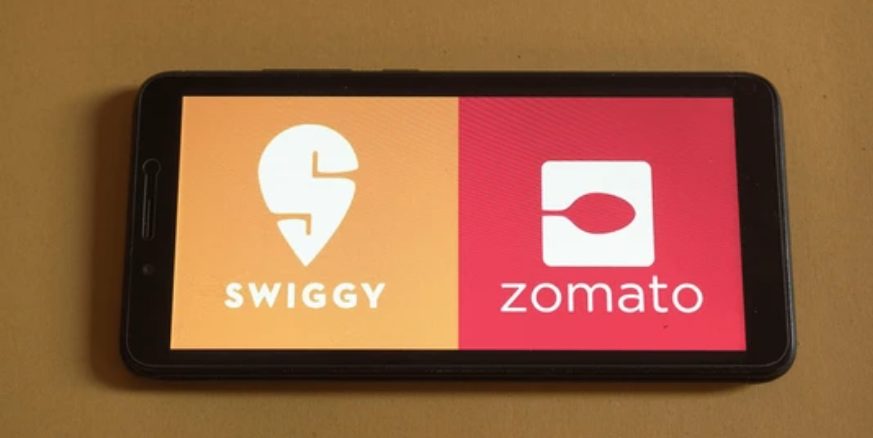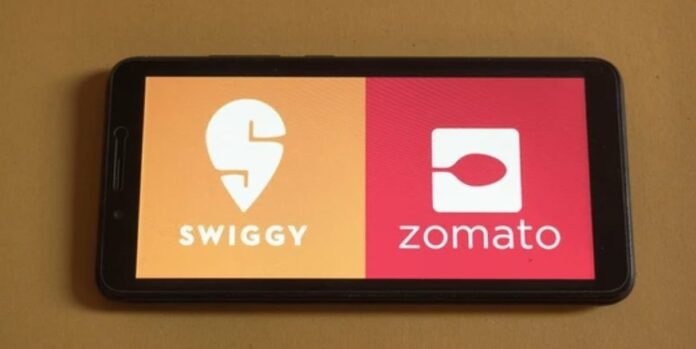Zomato along with Swiggy holds full dominance over the food delivery industry throughout India. The companies have transformed the food delivery sector by building an active competitive market throughout the duration of their operations. The predicted collaboration between Zomato and Swiggy has caused extensive legal and regulatory worries to appear throughout every sector. This assessment determines that Zomato and Swiggy should not merge based on antitrust laws and consumer advantages together with market competition patterns and economic implications.
Antitrust regulations in India function under the framework of The Competition Act, 2002. Under the Act, such combinations that result in an appreciable adverse effect on competition (AAEC) in markets will be forbidden. The amalgamation between Zomato and Swiggy would establish an almost dominating market position that would severely decrease industry competition. Section 3 (anti-competitive agreements) along with Section 4 (abuse of dominant position) of the Act would be violated because of this merger potentially drawing investigatory action from the Competition Commission of India (CCI).
The combined entity would eliminate explicit market competition between Zomato and Swiggy making the pair prone to adopt cartel-like practices. Competition between Zomato and Swiggy would cease after a merger which gave the newly merged entity excessive power to raise commission rates while setting prices arbitrarily and charging unreasonable delivery fees to consumers. An arrangement of this kind would negate fundamental free market concepts and work in conflict with the regulatory goals defined in the Competition Act, of 2002.
When markets have competition retailers and customers obtain superior prices together with better services and new market solutions. The merger between Swiggy and Zomato would reduce competitive competition which might cause prices to rise while both discounts would decrease and service quality would suffer. A food delivery service operating as a monopoly could create several consumer complaints according to the provisions of the Consumer Protection Act, 2019.
The restaurant industry strongly depends on online aggregators to promote its businesses and acquire new customers. A dominant marketplace player has the power to push restaurants into unfavorable agreements while raising fees and minimizing their ability to negotiate. Under Section 4 of the Competition Act, the restriction could be evaluated.
Both regulatory departments of CCI and the Ministry of Corporate Affairs as well as each sector’s designated regulatory agency must agree to approve this significant merger. The essential function of food delivery services in national economic operations makes such a merger unlikely to pass regulatory review making courts least likely to approve the merger.
Both Zomato and Swiggy combined have a strategic market presence exceeding 90% in the Indian food delivery business which restricts the growth potential of small competing companies. The extensive market control across all metropolitan regions and Tier-1 and Tier-2 locations indicates that their fusion could create an unchallenged monopoly structure which would diminish price competition and service development motivation. Without alternative market choices the merged company could create unfavorable conditions by establishing control over restaurateur commissions and delivery fees as well as pricing strategies that harm consumers and restaurant partners. The merged company will benefit from its broad customer network and extensive reach to create market obstacles that will limit new market entry and stunt business competition.


The dominance of a merged food delivery company operating as a single monopoly would make it difficult for new market entrants to succeed. A dominant entity controlling entry points to markets together with pricing along with restaurant alliances would make it almost impossible for startups and smaller aggregators to compete in this space. The alignment between Startup India policies that support business innovation and pro-innovation measures is undermined by this situation.
Modern legislation specifies financial thresholds for determining which arrangements comprising mergers, acquisitions, or amalgamations become subject to Section 5 of the Competition Act 2002. The proposed Zomato-Swiggy union would trigger section 5 regulations because it demands authorization from the Competition Commission of India. The extensive market presence coupled with financial power of both companies would make the transaction a candidate for Anticipated Appreciable Adverse Effect on Competition (AAEC) evaluation at the Competition Commission of India. Combinations must be approved by the Act because they should neither create monopolies nor reduce effective competition so businesses and consumers can continue benefiting from a competitive marketplace. The merger process could activate Section 6 enforcement from CCI because it involves competition reduction which may result in CCI rejection.
From a legal standpoint the proposed Zomato-Swiggy merger will probably produce more adverse effects than beneficial results for business growth. Such a merger would violate competition legislation whereas it would damage consumer interests and exploit restaurants while reducing market innovation potential. Food delivery regulation authorities need to establish an environment where market competition stays balanced and fair and delivers advantages for every stakeholder involved. A competitive food delivery sector should be nurtured with multiple players to maintain sustainability and guarantee welfare benefits for consumers throughout India.
Author: Piyush Soni, in case of any queries please contact/write back to us via email to chhavi@khuranaandkhurana.com or at Khurana & Khurana, Advocates and IP Attorney.
REFERENCES
- Sharma, P. (2024b, November 12). Why Zomato and Swiggy face antitrust challenges. Business Economy. https://www.businesseconomy.com/business/why-zomato-and-swiggy-face-antitrust-challenges/
- TOI Business Desk. (2024, November 13). “Couldn’t have asked for better company”: Zomato CEO’s heartfelt message as rival Swiggy makes market debut. The Times of India. https://timesofindia.indiatimes.com/business/india-business/couldnt-have-asked-for-better-company-zomato-ceos-heartfelt-message-as-rival-swiggy-makes-market-debut/articleshow/115248238.cms
- Competition Matters. (2024). India’s merger control regime gets a major overhaul. https://www.amsshardul.com/wp-content/uploads/2024/09/Competition-Law-Important-Comprehensive-Update-Overhaul-of-Indias-Merger-Control-Regime.pdf?
Exclusive: India finds Zomato, Swiggy food delivery businesses breached antitrust laws, documents show
https://www.reuters.com/world/india/indias-probe-finds-zomato-swiggy-breached-antitrust-laws-documents-show-2024-11-08/

